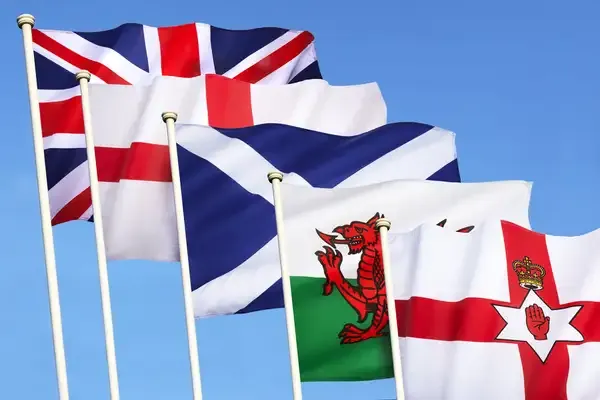Acts of Union: Uniting the United Kingdom
The Acts of Union were pivotal legislative measures that unified England, Scotland, Ireland, and Wales into the United Kingdom. The Act of Union 1707 merged England and Scotland, creating Great Britain with one parliament. The Act of Union 1800 incorporated Ireland, resulting in the United Kingdom of Great Britain and Ireland. These acts aimed to strengthen political stability, economic integration, and governance under a single sovereign state, shaping the modern UK and influencing its political and cultural landscape.

The Acts of Union were a series of legislative agreements that played a pivotal role in shaping the political landscape of the United Kingdom. The most significant of these occurred in 1707 and 1800, effectively uniting England and Scotland, and later Great Britain and Ireland, into a single sovereign state. Understanding the Acts of Union is crucial for grasping the complexities of UK politics and its historical context. Below, we delve into the details and implications of these Acts.
Historical Context
The Acts of Union were rooted in a long history of conflict and cooperation between England, Scotland, and Ireland. The desire for unity was propelled by political, economic, and social factors. Following the Glorious Revolution in 1688, both England and Scotland faced internal and external challenges, leading to discussions about a more unified governance structure. The Acts aimed to foster stability and enhance trade relationships, ultimately leading to the establishment of the Kingdom of Great Britain.
Key Provisions of the Acts of Union
The Acts of Union 1707 and 1800 included several important provisions, which can be summarized in the following table:
| Year | Act | Key Provisions |
|---|---|---|
| 1707 | Act of Union (Scotland and England) | Unified Parliament, shared monarchy, and the establishment of the Kingdom of Great Britain. |
| 1800 | Act of Union (Ireland and Great Britain) | Creation of the United Kingdom of Great Britain and Ireland, abolishment of the Irish Parliament. |
Political Implications
The political implications of the Acts of Union were profound. The creation of a unified parliament meant that Scottish and Irish representatives could participate in national governance. This move aimed to promote a sense of national identity and shared purpose among the diverse populations of the UK. However, it also led to tensions, particularly in Ireland, where the abolition of the Irish Parliament was met with resistance and resentment.
Economic Impact
Economically, the Acts of Union were designed to foster trade and economic stability. By creating a single market, the Acts aimed to enhance commerce and industry across the regions. For instance, after the 1707 Union, Scotland benefited from access to English colonies and trade routes, which significantly boosted its economy. Conversely, the integration of Ireland into the UK economy following the 1800 Act aimed to stabilize its agricultural economy and enhance trade opportunities.
Cultural Considerations
Culturally, the Acts of Union had mixed repercussions. While they aimed to create a sense of unity, they also sparked debates about national identity. In Scotland, the preservation of cultural practices and languages became a point of contention, leading to a distinctive Scottish identity that persisted despite political union. Similarly, in Ireland, the Act of Union contributed to a growing sense of nationalism and the eventual push for Home Rule in the 19th and 20th centuries.
Modern Relevance
Today, the legacy of the Acts of Union continues to influence discussions around governance and identity within the UK. The ongoing debates regarding Scottish independence and the status of Northern Ireland reflect the complexities introduced by these historical agreements. Recent political developments, including Brexit, have reignited conversations about the future of the union and the balance of power among its constituent nations.
Conclusion
The Acts of Union were more than mere legal agreements; they were transformative events that reshaped the political, economic, and cultural landscape of the United Kingdom. Understanding their implications provides valuable insights into the ongoing discussions surrounding national identity, governance, and the future of the union itself. As the UK navigates contemporary challenges, the lessons drawn from the Acts of Union remain relevant, reminding us of the delicate balance between unity and diversity.
In conclusion, the Acts of Union stand as a testament to the complexities of nation-building and the intricate relationships among the countries that comprise the United Kingdom. By examining these historical events, we gain a deeper appreciation for the ongoing journey of the UK and its multifaceted identity.












